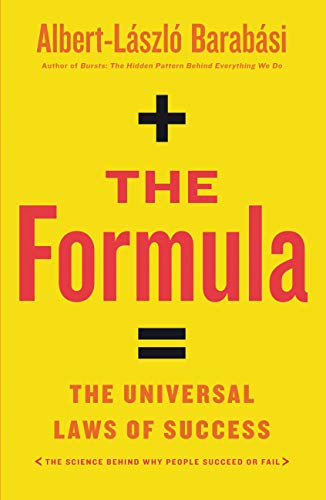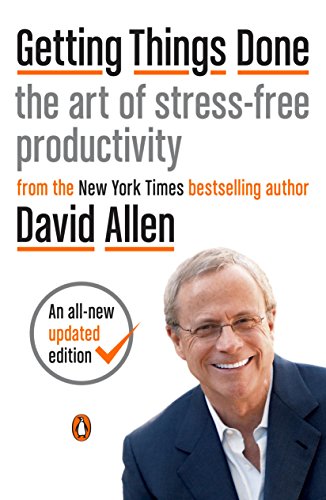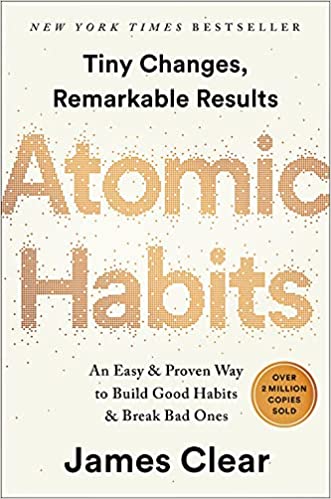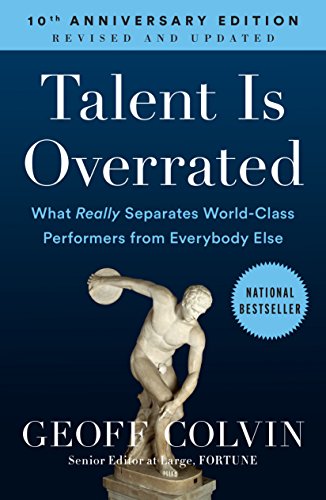When I was a kid, I hated organizing. My desk at school was a masterpiece of chaos. I never planned anything. I just did what I wanted.
But I learned a secret sometime in college–every time I made just a tiny effort to organize my life, the payoff was huge.
Organization is about managing the “resources” you have in life:
- Your time
- Your money
- Your energy
Everybody has limited time, energy, and money. It’s on you to make the most of what you’ve got.
Over many years, I’ve slowly figured out ways to manage my life without cramping my style. Here are some of the tools I’ve found that I truly love using:
Planning and Tracking Your Money: YNAB
I’ve used several tools over the years to manage my money. And I hated all of them.
Until I found YNAB, which is short for “You Need a Budget.” It’s an online tool that you can use from any web browser.
I quickly discovered that YNAB is extremely simple. It thinks the same way I do.
Within about an hour of starting up with YNAB, admitted to myself that I actually enjoy using it. I schedule time every Saturday to “do YNAB” and I quickly buzz through all my bills. What I like most about YNAB is that I can easily make a monthly plan for my money. It’s super-simple, and if things change during the month, it’s just as easy to tweak the budget. I’ve been using YNAB since December of 2010, and I love it.
Click here to find out more about YNAB. (Affiliate link)
Planning Your Tasks and Projects: KanbanFlow
I’m ashamed to admit that when I first heard about the “Kanban” method of planning tasks and projects, I mocked it. Some of my friends were discussing it at our annual Mastermind retreat, and I came in on it late, and so I didn’t know what they were talking about. So I made up a song to tease them.
But over the course of the next few months, I watched them all build their “Kanban boards” and organize their projects.
And I started feeling left out. So I bought a couple of books on Kanban, read through them in a few hours, and decided that I need to find the ultimate tool for “doing Kanban.”
I spent about a week looking at every online Kanban tool on the web. I signed up for trials on several of them.
I finally settled on a website named KanbanFlow.
There’s a free version and a payware version with more features. I started with the free version and eventually upgraded to the payware version because I found the tool insanely great.
I’ve now been using KanbanFlow since September of 2017, and I use it every single day of the year. My daily To-Do List is in the “today” column of my Kanban board. The other columns track all the tasks and projects that I want to do “someday,” “this year,” “this quarter,” “this month,” and “this week.”
Every day, I drag things from the “this week” column into the “today” column. Every week, I drag things from the “this month” column to the “this week” column. It’s simple. And amazingly powerful. If you use the famous “Getting Things Done” methods of David Allen, you can easily run those methods using KanbanFlow.
To find out more about Kanbanflow, visit the website here.
Tracking Your Time: Harvest
If you want to make a realistic annual plan for your life, you absolutely must know how much time you actually spend on real tasks and real projects.
Which means you need to track your time. This is an awful truth, but I’ve never found any way around it.
So at the tail end of 2007, I went looking for some tool somewhere to help me track my time.
I found an online tool called Harvest, and I’ve been using it ever since.
I don’t really love entering my time, but I do love knowing how I spent my time over the last week, month, and year.
Because knowledge is power. When I know what was realistic for me in the past, I can make realistic plans for the future. I can figure out if my life is overextended. And I can make decisions on what things to prune.
Click here to learn more about Harvest.
Typing Frequently-Used Words and Phrases: TextExpander
There are certain phrases I type over and over and over. Like today’s date. Or my street address. Or my phone number. Or the e-mail I send out every month to my critique group to announce our next meeting.
I save all those in an online tool called TextExpander. For each one, I have a short “magic” abbreviation. Whenever I type in the abbreviation, TextExpander replaces it automatically with the longer piece of information.
So when I type in the magic abbreviation “tday,” TextExpander replaces it with today’s correct date, followed by the day of the week in parentheses. (I use this in all my electronic journals, and it saves me a TON of time.)
If you never type the same thing twice, then TextExpander is not for you.
But if you spend much time retyping the same long words or phrases or sentences or e-mail chunks, then TextExpander might just save you a little time and a lot of irritation.
You can find out more about TextExpander here.
Classic Books That Have Made My Life Better
Here are some books that have taught me oodles about managing my life. I highly recommend each of them:
- Getting Things Done, by David Allen.
- Atomic Habits, by James Clear.
- The Formula, by Albert-Laszlo Barabasi.
- Talent is Overrated, by Geoff Colvin.
Here’s a bit more information about each of these books, with links to the major retailers:
This is a classic book on managing your life. I would guess that millions of people have read it and found it useful.
I read it many years ago and it’s made a huge difference in my life. The author likes to use paper files to put his method into practice. I prefer to use software, but that’s a personal preference.
I strongly, strongly, strongly recommend that you try the Getting Things Done (GTD) methodology, even if you hate organizing. Especially if you hate organizing.
You don’t need willpower to change your life. What you need is a set of good habits that you simply do automatically, without having to gin up the willpower to do them.
Atomic Habits will teach you how to form those good habits. Quickly. Efficiently. More easily than you ever imagined. I’ve used this book to create a standard set of habits that get all the boring stuff done in my life without me thinking much about them. So I can spend my life thinking about the fun stuff.
The Formula: The Universal Laws of Success

This book is simply the best thing I've ever read on why some people have massive success and most people don't.
Five factors control how successful you'll be in life. (Here I'll define success as "how much money you earn." There are other ways to define success, but none of them are as objective as just counting dollars. It's certainly worth pursuing those other kinds of success, but let's stay focused on money here.) This book will teach you the factors that control your success, and it will show you what you can do to bump those factors in your favor. It's the best book ever on success.
This is one of the most encouraging books I’ve ever read.
I always thought that your success was mostly based on your inborn talents, and that hard work added something to that. But I changed my mind after reading this book. Talent probably matters, but much less than we’ve all been led to believe.
Hard work matters a whole lot more. But not all kinds of hard work are created equal. If you think “hard work” means “busy work,” the good news is that “busy work” is pretty much useless.
But there’s another kind of “hard work” that makes all the difference. It’s called “deliberate practice,” and this book will prove to you that it matters, explain why it matters, and show you how to do it.
If you believe in my Success Equation, then you know that a big part of success is the quality of your writing. Quality is one of the five key factors to your success. The good news in the book Talent is Overrated is that quality can be learned. In fact, “deliberate practice” is the key to boosting the quality of your writing.


